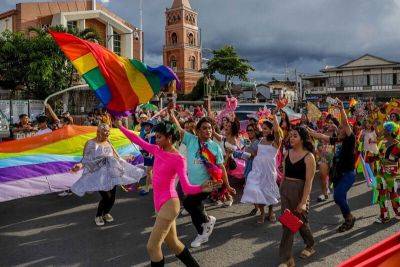Warning issued vs deepfake campaigning in 2025 polls
MANILA, Philippines — Synthetic videos, popularly known as deepfakes, are expected to flood the social media accounts of Filipinos, as candidates for the mid-term elections may turn to artificial intelligence (AI) to attract votes.
Cybersecurity giant Trend Micro yesterday warned Filipinos of the dangers that they may face in the months leading to the 2025 elections, as political personalities and groups could exploit AI to push their agendas.
Deepfakes are produced with AI and may come in the form of audio, photo or video imitation of the likeness or demeanor of certain personalities, particularly celebrities and politicians, aimed at misleading people.
Anyone can produce deepfakes just by grabbing a photo of someone online. Using the power of AI, the technology can make someone appear to do or say something in a video, making it a potent tool for deceptive activities.
Recently, President Marcos fell victim to deepfake in the form of an audio where he was supposedly ordering the Armed Forces of the Philippines to act against China.
As such, Trend Micro global security and risk strategist Shannon Murphy proposed that the Commission on Elections come up with rules and regulations on the use of AI in the upcoming polls.
Murphy said candidates and their backers should be made to comply with specific guidelines, lest they may take advantage of the growing power of AI to create propaganda materials.
Likewise, Murphy emphasized the need for penalties against violators. She also called the attention of social media platforms, asking them to improve their capability in flagging deepfake content and misleading information.
In 2022 Meta took down more than five million pieces of content from Facebook and Instagram for violating community standards in the runup to the presidential elections.
Some of the removed content incited violence against certain candidates, breaching social media rules on hate speech and bullying and harassment.







